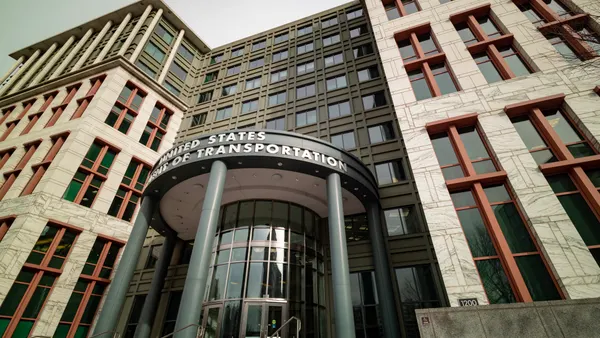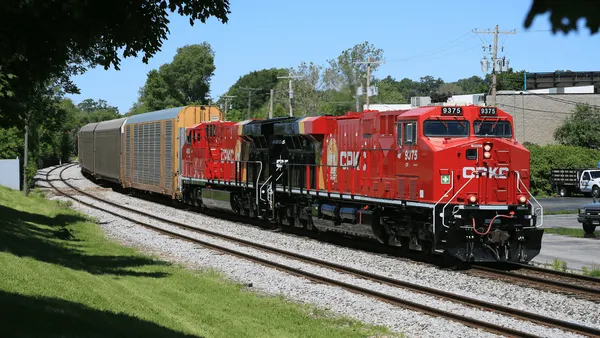Dive Brief:
- Safety and worker groups filed a petition Wednesday with the U.S. Court of Appeals for the District of Columbia, asking the court to review the FMCSA's HOS final rule, which is slated to take effect Sept. 29.
- Advocates for Highway and Auto safety, the Teamsters, Parents Against Tired Truckers, and Citizens for Reliable and Safe Highways are the petitioners. The Wednesday filing follows a June 30 petition from those organizations, with the addition of Truck Safety Coalition, requesting that the FMCSA reconsider the final rule. The agency denied the petition Aug. 25. The latest petition asks the appeals court to review that denial.
- Filing the petition will not keep the HOS final rule from going into effect, Adina Rosenbaum, the attorney with Public Citizen Litigation Group representing the petitioners, said in an email.
Dive Insight:
The court activity casts doubt over the longevity of the HOS changes, but the petition won't stop the rule changes from taking effect in less than two weeks. The court is expected to review the HOS petition "over the next several months," Rosenbaum said. And if it agrees with the petitioners, the HOS final rule will be "invalidated," according to a press release from the Advocates for Highway and Auto Safety.
Fleets have been readying their workforce for the impending rule changes. Roadrunner Freight President Frank Hurst said in June the company's safety team is conveying the rule changes to its independent drivers so that everyone can be in compliance when the rules kick in.
"It won’t result in big operational changes for us, but we will be set up for the new rules," he said. "We’re educating dispatch and our 24/7 team to take any questions drivers may have."
The HOS final rule introduces four major changes:
- a break that can be satisfied by on-duty, not-driving status
- a modified sleeper-berth exception
- an extended adverse-driving-conditions window
- an extended duty period under the short-haul exception
The June 30 petition contends all four, and fatigue are the centerpiece of the safety organizations' counterpoints. The groups also argue that the FMCSA used data inefficiently when developing the rule changes.
"The Agency repeatedly relies on the baseless claim that driver fatigue and the crashes it causes will not increase because the Final Rule does not permit additional driving time beyond the limits provided in the current regulations," the groups wrote in their June petition.
In response, the FMCSA sent a denial letter, acknowledging the concerns but discounting them.
"The Agency continues to believe that the changes adopted by the Final Rule will not result in adverse safety consequences," the letter states, later adding the agency believes the petition's "challenge to the data relied upon by the Agency is without merit."
None of the rule changes allows drivers to drive additional hours beyond the current regulations, the agency wrote. And, except for the adverse driving conditions modification, none of the changes allows drivers to operate trucks after hour 14. The revisions don't allow drivers to extend the work shifts by using multiple or intermittent off-duty breaks, the agency said, and the final HOS rule still prohibits driving when sick or tired and coercing drivers to violate federal safety rules.
"Therefore, the basic parameters of the HOS rule that are essential to safety remain unchanged," the denial letter states.










